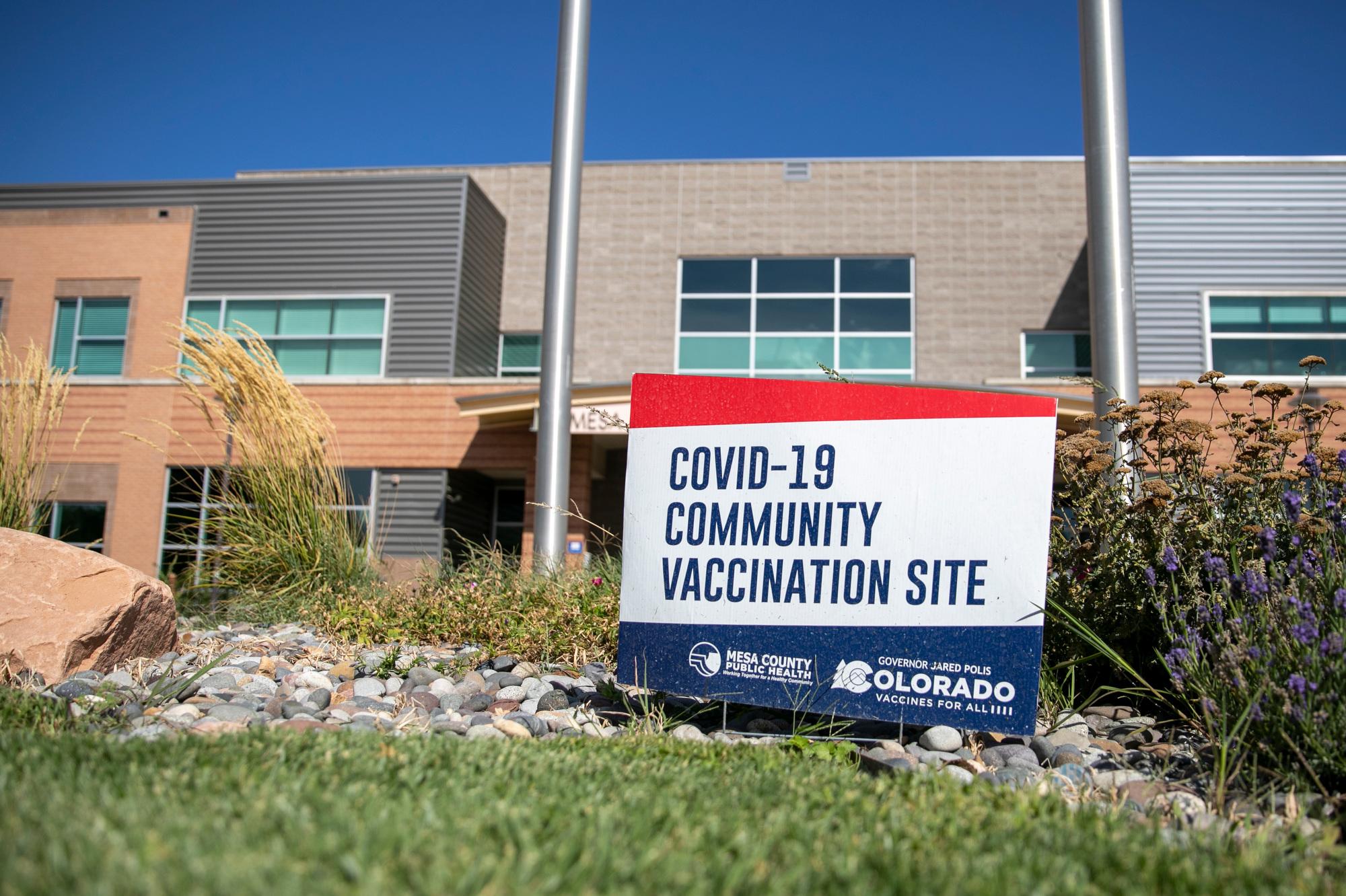
Colorado is still seeing extraordinarily high levels of coronavirus transmission and hospitalizations. But those numbers appear to have peaked and are now falling. State pandemic modelers, citing new projections, say they expect the epidemic curve to keep dropping in the next few weeks.
“It is encouraging to see this modeling report suggest we have moved beyond the peak of our omicron surge, and that we should continue to see declining COVID-19 transmission in Colorado in the coming weeks,” said Dr. Rachel Herlihy, state epidemiologist, in a health department press release.
Still, the Colorado COVID-19 Modeling Group estimates a large number of the state’s population, one in 19 Coloradans, is currently infectious.
But immunity to the omicron variant is “high and rising,” according to the state. Modeling estimates a notable 80 percent of the state's population will be immune to omicron by mid-February. Infection numbers have hit unprecedented levels this month, but models project it will drop sharply in the coming weeks, potentially back to low levels (below 1 percent) by the end of February.
The health department said there’s still plenty of uncertainty around the estimate.
And while infectious disease experts are seeing similar trends nationally, they are cautioning that the coronavirus has broken all the rules and a troubling new variant could pop up at any time.
“If we fast forward to the end of late spring, early summer, so May, will there be a new variant? Probably,” said Dr. John Swartzberg, a clinical professor emeritus and expert in infectious diseases at the UC Berkeley School of Public Health. “But we're going to have a very different, from an immunity perspective, a very different population.”
“Hopefully we'll have more people vaccinated and boosted,” he added.
Colorado’s COVID-19 hospitalizations dropped for the 8th straight day on Tuesday to 1,526. But that number is still extremely high after the omicron wave arrived on the heels of the delta surge. Ninety-one percent of intensive care beds are in use, and only 135 of a total of roughly 1,500 ICU beds are open.
Staffing remains extraordinarily tight, with more than half of hospitals anticipating a staff shortage in the next week, and about a third of facilities anticipating an ICU bed shortage.
The seven-day positivity rate fell again Tuesday, as it has been for the past two weeks, down to 22.82 percent. On January 11, that figure was nearing 30 percent, or six times the 5 percent threshold epidemiologists regard as worrisome.
Cases also appear to be dropping sharply, though the true picture is hard to gauge. Many people are now taking COVID-19 tests at home, officials worry most people are not reporting their results to the state.
Herlihy urged Coloradans to stay cautious and keep following public health guidance to help protect themselves and others. That includes getting vaccinated, getting a third dose as soon as it is time, wearing a mask in public, and steering clear of large gatherings.
“Together we can work to ensure case rates continue to decrease in Colorado,” she said.
The projections are based on COVID-19 hospital census data through Jan. 23, and vaccination data through Jan. 14.
The modeling group includes scientists at Colorado School of Public Health and the University of Colorado School of Medicine at the CU Anschutz Medical Campus, plus experts from the University of Colorado Boulder, University of Colorado Denver, and Colorado State University.









